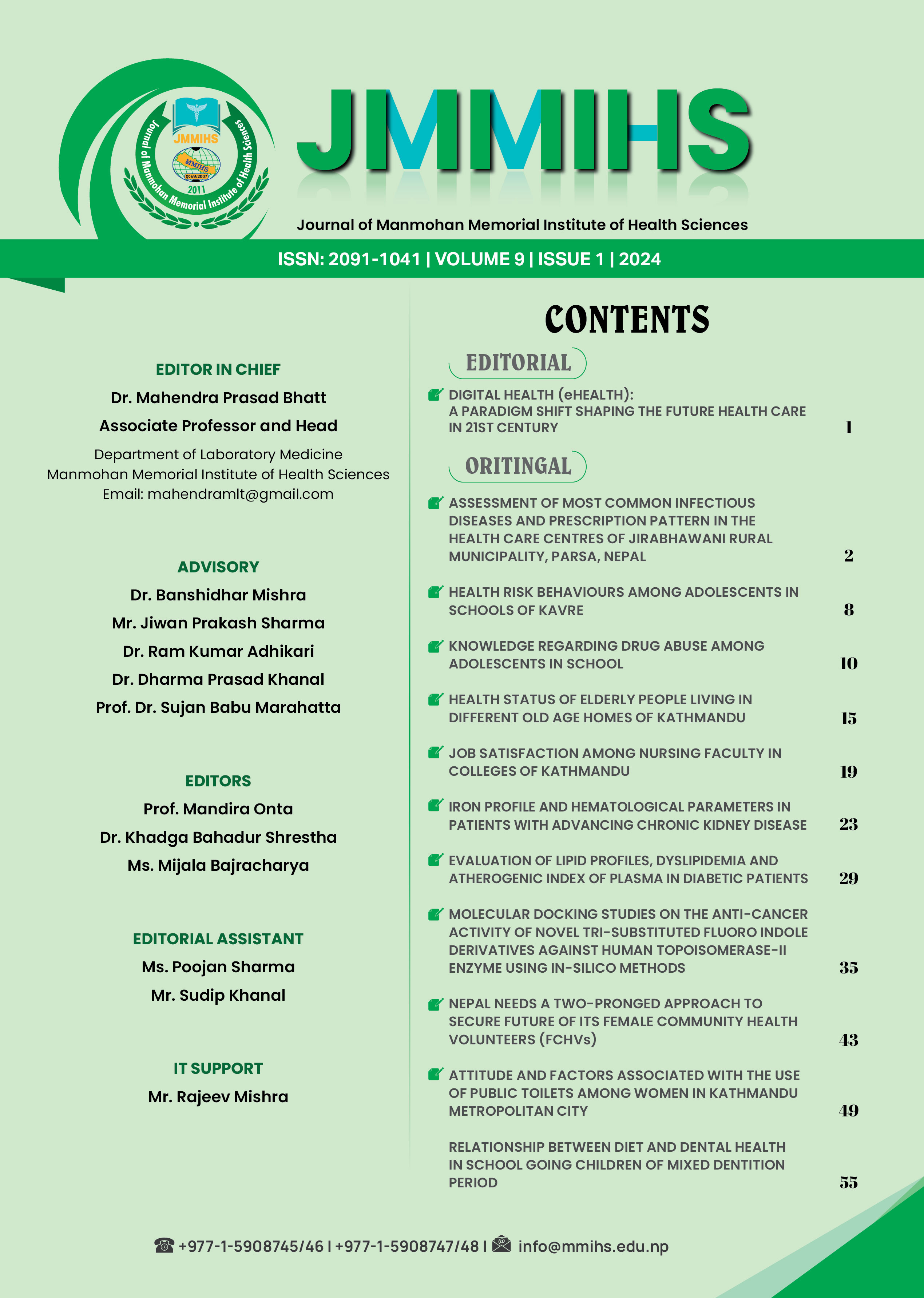Job Satisfaction Among Nursing Faculty in Colleges of Kathmandu
DOI:
https://doi.org/10.3126/jmmihs.v9i1.68635Keywords:
Job Satisfaction, Nursing Faculty, Professional CharacteristicsAbstract
Background: Job satisfaction is one of the global issues that are evident throughout the world. Dissatisfaction among nursing faculty threatens the integrity of the higher education system. Thus, the objective of the study was to find out the job satisfaction among nursing faculty in colleges of Kathmandu.
Method: A descriptive cross-sectional design was carried out among 56 nursing teachers in colleges of Kathmandu using a non-probability purposive sampling technique. Data was collected through Self-Administered Questionnaire technique by using the standard structured Job Satisfaction Survey tool by Spector. Data was analyzed by descriptive and inferential statistics and findings were presented in table.
Findings: The findings of this study show, one-third (39.3%) of nursing faculty were satisfied, more than half (51.8%) were ambivalent, and only (8.9%) were dissatisfied with their job. The current study revealed that the highest job satisfaction was observed in communication (29.0%), followed by nature of work (27.2%), coworkers (25.0%), Fringe benefits (16.7%), Contingent Reward (15.4%), Pay (15.2%), Supervision (9.1%), Operating Condition (7.5%) and least at Promotion (6.3%). A significant association was found between the level of job satisfaction with types of institution (p= 0.001), types of job (p=0.002).
Conclusion: The nursing faculties are less satisfied with their job, especially with the promotion of their institutions. Managers and authorities are recommended to adopt preventive behaviors such as regular surveys with nurse educators and setting up meetings with them in order to identify their job satisfaction.
Downloads
Downloads
Published
How to Cite
Issue
Section
License
© Journal of Manmohan Memorial Institute of Health Sciences (JMMIHS)
All rights reserved to JMMIHS. Any part of this journal cannot be reproduced, or transmitted in any form including electronic mail, photocopying or recording or otherwise without prior written permission of the publisher.

